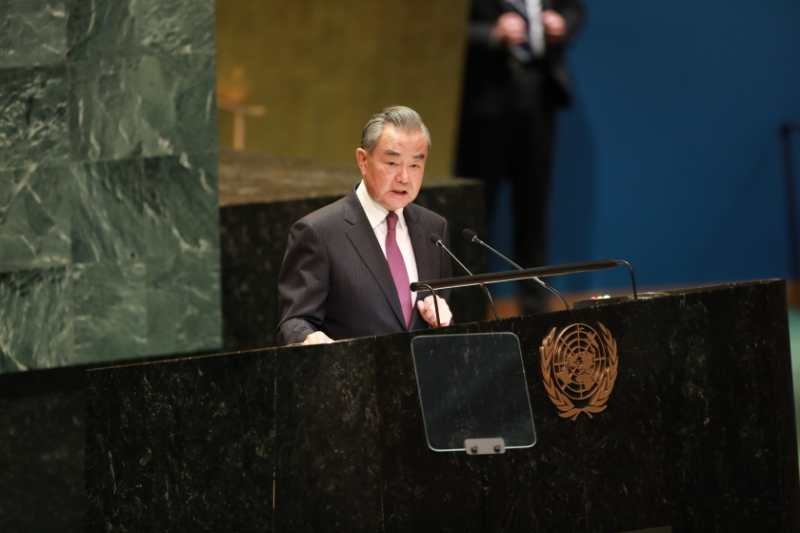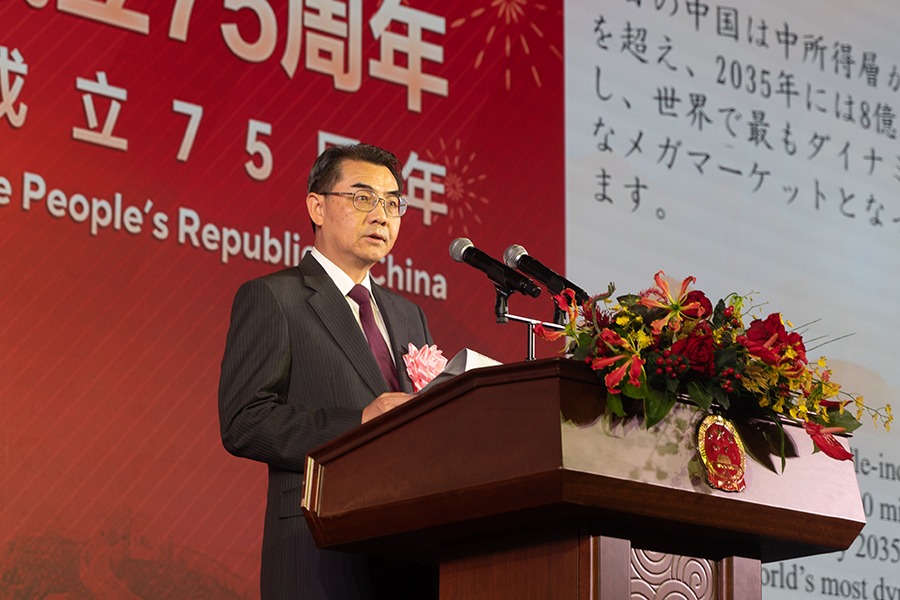Tanzania's FM highlights mutual benefits with China


Tanzania's Minister of Foreign Affairs and East African Cooperation Mahmoud Thabit Kombo lauded the outcomes of the Forum on China-Africa Cooperation, highlighting its significant role in fostering development and strengthening their relationship.
In an interview with China Daily, Kombo spoke about the benefits of China-Africa cooperation for Tanzania and the entire continent, as well as the potential for increased collaboration on the path to modernization.
"The just-ended FOCAC provides a clear vision on how China and Africa are going to benefit from their cooperation. China's vision for China-Africa cooperation is based on equality, human-to-human touch and people-to-people development. It's not just China benefiting, and we are the evidence because we see tangible development from collaborating with China," he said.
China has been Tanzania's largest trading partner for eight consecutive years. Last year, bilateral trade volume of goods reached $8.78 billion, marking an 8.9 percent year-on-year increase, according to China's Ministry of Foreign Affairs.
"China is not only our No 1 trading partner but also the No 1 investor in Tanzania, with investments spanning industrial, agricultural and infrastructure sectors," Kombo said.
He reminisced about the historical significance of the TAZARA Railway, built by China in the 1970s, which links Zambia with the Tanzanian port of Dar es Salaam.
"At that time, China was not a rich nation, yet it spent an amount equivalent to 5 percent of its GDP to build the TAZARA Railway. It's not easy," he said.
"This railway, after it was opened, significantly boosted the economies of Tanzania and Zambia, especially since Zambia is a landlocked country that relies on Tanzania for the transport of oil, fuel, goods, minerals and crops."
The railway has had a profound effect on the social, economic, industrial, agricultural and energy sectors of both countries, he said. "This railway contributed so much to the development of these two countries. So, it stands as one of the biggest commitments in the history, an iconic project that China has done for these two nations."
During the FOCAC summit earlier this month, leaders from China, Tanzania and Zambia witnessed the signing of a memorandum of understanding on the revitalization project of the TAZARA Railway, aimed at improving the rail-sea intermodal transport network in East Africa.
"We understand when China invests in our countries, we can benefit from that Chinese investment," Kombo said. "When China supports our infrastructure, the real aspect is a mutual respect and beneficial relationship with both sides reaping the benefits."
Citing soybean cultivation, he said boosting soybean productivity and its exports to China requires mechanization, modernization and infrastructure, all areas where partnership with China is crucial.
"In producing soybeans, we need mechanization and modern agricultural technology, which China already possesses. We also need infrastructure to transport the soybeans from the farm to the port.
"If you visit Tanzania today, you will see a lot of infrastructure developed and built by the Chinese," Kombo said, adding that Chinese loans have enabled Tanzania to develop its infrastructure. "These loans enable us to develop, produce more and to be able to pay back the loans."
Looking to future China-Africa cooperation, Kombo pointed to the 10 partnership actions announced at the FOCAC summit, which address Africa's critical needs such as trade prosperity, industrial chain, connectivity, health, agriculture, livelihood and green development.
He particularly emphasized the potential for cooperation in green development.
"China leads the world in the battery industry in terms of technology and market share. I recently learned that for 25 to 30 percent of the components of Chinese-made batteries, the raw material is sourced from Africa. This presents a great opportunity for Chinese industries to open factories in Africa, where such components can be made locally, creating local employment and facilitating technology exchange," he said.
































